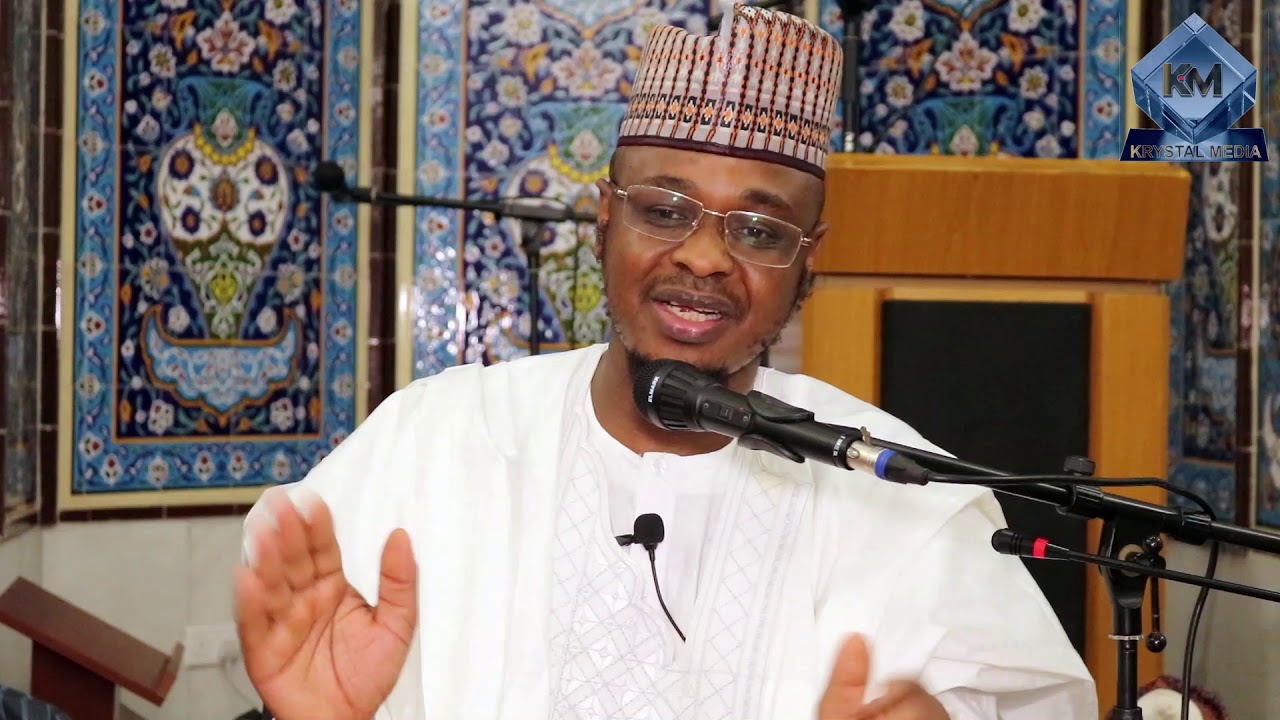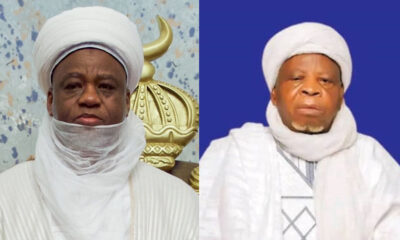Business
Call, Data Costs To Double As FG Invokes New Telecom Tax

Call and data tariffs may increase by as much as 100 per cent if plan by the federal government to hike consumption tax on telecom services scales through, Daily Trust can report.
Daily Trust reports that the federal government had recently disclosed plan to implement a 5 percent excise duty tax on telecoms services, increasing the total consumption tax on telecom services to 12.5 percent.
The new tax regime, according to industry sources, will not only affect subscribers but also add tax burden on the telcos which would translate into rise in tariffs.
If the 5 per cent increment is eventually implemented, industry experts say, Nigerians will now be paying as much as N40 per minute call, up from about N20. And data tariffs could also go up to about N2,500 per gigabyte.
The finance minister, who unveiled the plan at a stakeholders’ forum on the implementation of excise duty on telecommunications services in Nigeria organized by the Nigerian Communications Commission (NCC), said the 5 percent excise duty was in the Finance Act, 2020.
She said the accrued taxes would be remitted on monthly basis, on or before 21st of every month. The move, according to the minister, was part of effort by the government to boost non-oil revenue in the face of dwindling income, especially from the oil sector.
The proposal has, however, set Minister of Finance, Budget and National Planning, Zainab Ahmed, and the Minister of Communication and Digital Economy, Prof Isa Ali Pantami, on collision course.
While the Ministry of Finance cites a presidential approval to apply the new excise on telecommunication services, as provided by the Finance Act, the Ministry of Communication and Digital Economy is kicking on the ground that the new tax would be harmful to the sector and to subscribers.
Telecom stakeholders, experts oppose
Also, Nigerian telecommunication consumers, under the aegis of the National Association of Telecoms Subscribers, have described the move by the federal government to increase the total consumption tax on telecom services, which include GSM to 12.5 percent as “irresponsible and ill-timed”.
According to the association, Nigerians are already suffering as a result of harsh economic conditions and another tax on telecom subscribers will further impoverish many especially as telecom services are essential to everyone.
READ ALSO:
- Shock, Mixed Feelings As UAE Tightens Visa Rules For Nigerians
- US, Bagudu’s Brother Near Deal on Kebbi Governor’s Money Laundering Case
- APC Denounces ‘Vote-manufacturing’, Unveils Omo-Agege’s Running Mate
President of Association of Licensed Telecom Operators of Nigeria (ALTON) Gbenga Adebayo, described the excise duty as unusual, saying that it will increase the burden on the telecom operators as they already have 39 other taxes that have been imposed on them.
Adebayo who spoke virtually at a forum last week stated that his association may not absorb the tax on behalf of the subscribers, noting that they will transfer the burden to the subscribers to pay higher prices for services.
The Executive Secretary of the Association of Telecommunications Companies of Nigeria (ATCON) Ajibola Olude also kicked against the proposed tax, saying that it does not comply with the principles of taxation which include fairness.
The implementation of the excise duty according to him will cause job loss; stressing that the proposed excise duty on all telecommunications companies is badly intended, he said.
Also the President of National Association of Telecoms Subscribers (NATCOMS), Chief Adeolu Ogunbanjo, lamented that sector is already heavily taxed with payment made on every recharge card coupled with the existing 7.5 percent VAT.
According to him, the new excise duty will cumulatively hike the tax to 12.5% including VAT, which will be a huge burden on Nigerians. The move, he said, is “insensitive and unpalatable”.
Ogunbanjo urged government to reverse its decision to increase the tax in the interest of the people as the telecom industry is the last hope of the common man and should not be destroyed.
A telecom consumer in Lagos, Mr. Lawrence Abi said that the masses may not feel the impact of the excise duty since it’s not on edible commodity.
He said, “As essential as communication is , how many people know how much they are charged per minute? More so, we have paid higher amount at the inception of the GSM. So it will not have effect on goods and services. We also have alternative to call such as WhatsApp call.
“By and large it’s better than additional loans for consumption,” he said.
However, the Nigerian Communications Commission (NCC) said there was no any immediate plan by operators to increase tariffs.
The Minister for Communications and Digital Economy had, last Monday, expressed dissatisfaction with efforts by the federal government to introduce excise duty on telecommunication services.
Pantami in his address at the maiden edition of the Nigerian Telecommunications Indigenous Content EXPO (NTICE) themed ‘Stimulating the development of Indigenous Content through innovation and commercialization’ holding in Lagos stressed the need for government and stakeholders to continue to support the sector, and not unnecessarily put burden on it.
“The Minister of Communications and Digital Economy is not satisfied with any effort to introduce excise duty on Telecommunications. When VAT was increased to 7.5percent, I was not consulted, I only heard the announcement and I think there is something questionable and I am glad that we are on the same page with our national assembly members. They too have not been consulted despite the fact that they are part of the committee.
“Beyond, making our position known, we will go behind the scene and go against any policy that will destroy the digital economy sector. This is a sector we cherish so much and we are ready to go to any extent, legitimately and legally to defend its interest.” he said.
When contacted yesterday, Pantami maintained his lack of support for the planned excise duty hike.
When asked to comment on why Pantami is not in support of the new tax hike, his spokesperson Uwa Suleiman directed Daily Trust reporter to contact the NCC for clarification on her principal’s statement on his lack of support for the excise duty on telecom services.
But when contacted, the NCC’s Director of Public Affairs, Mr Reuben Mouka said the “Minister had made his position public (at the Lagos event). He didn’t hide it.”
Why communication minister opposed proposed excise
A senior official of the ministry said Pantami is against the hike in excise duty on telecom services because it could drive away investors and increase hardship among Nigerian as telecoms might increase data and calls tariffs as a result of the tax.
READ ALSO:
- Suspected gunrunners arrested on Nigeria-Cameroon border
- 90-year-old held over drug supply to bandits
- Subsidy: FAAC demands petrol consumption records from NNPC
- Just in: Buhari’s nephew quits APC after losing re-election ticket
In addition, Daily Trust gathered that the minister was bitter due to lack of proper engagement by the finance ministry on the issue.
“Yes, there was a letter from the Ministry of Finance informing us about the plan to commence the collection of the excise duty, but the minister replied to let them know we were not consulted and also emphasised how this law will increase the hardship of our citizens and is detrimental to the growth of the Digital Economy sector,” he said.
According to him, there was no proper stakeholder engagement by the finance ministry, including public hearing on the proposed provisions to enable all stakeholder provide inputs.
“We were not informed and the relevant committees in the National Assembly were also not informed,” he added. Another source at the ministry said the minister had promised the telcos that he would meet with President Muhammadu Buhari on the issue.
One of the telecom operators’ official told one of our reporters that no date had been communicated to them as the commencement date of the new excise duty.
“But you they may take us by surprise and start this month; we never can say”, the top telcos official who begged not to be named, told our reporter.
We’re consulting on implementation – Finance ministry
However, a spokesperson for the Minister of Finance said the ministry was in consultation with stakeholders on collection of the excise levies.
Responding to Daily Trust’s enquiry yesterday, the spokesman, Dr Yunusa Tanko, said the new tax regime said the excise collection ought to be with effect from June 1, 2022, which was the end of a three month moratorium provided by the ministry.
He said the minister had, “vide Circular dated 1st March, 2022 informed the Nigeria Customs Service and other Heads of Government Ministries, Departments and Agencies (MDAs), including the Federal Ministry of Communication & Digital economy on Mr. President’s approval of the implementation of the 5% excise duty on telecommunication services with effect from 1st June, 2022. The circular provided a ninety (90) day moratorium with effect from 1st March, 2022 before the implementation of the excise tax”.
Dr Tanko said the new provison is yet to be implemented due to “the need to ensure reasonable transition period before the implementation of the new tax, as well as provide clarity to all stakeholders on implementation modalities”.
He reiterated that the excise was hinged on the provisions of Finance Act, 2020 which “introduced “Telecommunication Services” provided in Nigeria to be liable to excise duty under Section 21 (2) of the Customs and Excise Tariff Etc. (Consolidation) Act, CAP. C49, LFN 2004. It, therefore, means that all stakeholders have by that singular provision aware of the Act”.
He said the ministry was working with stakeholders including Manufacturers Association of Nigeria (MAN) and Association of Telecom Operators of Nigeria (ALTON) on modalities for implementation of the excise duty.
Auto
Mikano, Autochek Set to Roll Out Virtual Showroom, Expand Auto Finance

Mikano, Autochek Set to Roll Out Virtual Showroom, Expand Auto Finance
Mikano Motors and Autochek Africa are to launch a virtual showroom and expand digital auto financing options in Nigeria, signalling a fresh shift in how vehicles are bought and financed in the country.
The partnership, set for formal unveiling on February 27, 2026, at Mikano Motors’ Victoria Island showroom in Lagos, will see the creation of a dedicated Mikano Motors Virtual Showroom on Autochek’s marketplace.
Through the platform, customers can browse Mikano’s vehicle lineup — including Changan, Maxus and other brands in its portfolio — compare models, and access tailored financing options without leaving the digital space.
Buyers will also be able to explore structured auto loans, flexible payment plans and receive quicker credit assessments within a single ecosystem.
The move effectively migrates critical stages of the car-buying journey online, reducing the delays traditionally associated with financing approvals and documentation.
Group Executive Director of Mikano, Joelle Haykal, said the initiative aligns with the company’s commitment to enhancing customer experience.
“Our goal is not just to sell vehicles, but to simplify ownership,” she said, noting that integrating financing into the buying process gives customers more flexibility and control.
Autochek, a technology-driven automotive marketplace operating across Africa, leverages data analytics to power credit decisions and financial services designed to lower the barriers to vehicle ownership.
By embedding financing directly into vehicle listings, the platform aims to streamline transactions and improve transparency.
Industry analysts say the collaboration reflects a broader trend of digital transformation sweeping across Nigeria’s automotive sector, as dealers and financiers adapt to evolving consumer expectations.
For Mikano Motors, a subsidiary of Mikano International, the deal expands its market reach through digital channels. For Autochek, it strengthens its presence in Nigeria’s new vehicle segment.
Together, both firms are betting on a hybrid retail model that blends physical showrooms with seamless digital access — redefining the path to car ownership in Nigeria.
Business
CBN Mops Up $190 Million to Slow Rapid Naira Appreciation

CBN Mops Up $190 Million to Slow Rapid Naira Appreciation
The Central Bank of Nigeria (CBN) last week intervened in the foreign exchange (forex) market, buying about $189.8 million to slow the rapid appreciation of the Nigerian naira at the official window. Analysts say the move aims to absorb excess US dollar supply, stabilise the currency, and prevent market disruptions that could affect investors and the broader economy.
The naira had strengthened sharply in recent weeks, closing at around ₦1,346.32/$ in the official market — a week-on-week gain of ₦9.09. The parallel market also recorded gains, with rates improving by ₦60 to about ₦1,340/$. As a result, the FX spread — the difference between official and parallel rates — narrowed significantly to 0.47% from 3.29% the previous week, signalling improved convergence between the markets.
TrustBanc Financial Group noted that the naira’s successive rally could have prompted foreign investors to exit the fixed-income market, selling their holdings to repatriate profits. This scenario could have triggered higher US dollar demand, putting additional pressure on the naira and weakening market stability.
READ ALSO:
- FCT Poll: Falana Queries Wike’s Power to Declare Public Holiday
- Iran Threatens ‘Ferocious’ Retaliation as Trump Weighs Military Action
- Tinubu to Governors: State Police Must Begin Now
Normally, central banks sell dollars to support the currency, but the CBN reversed this trend for the first time in months, buying dollars to moderate gains and prevent speculative surges. Analysts said this measured intervention reflects the bank’s commitment to exchange rate stability and orderly FX market operations.
On the macroeconomic front, Nigeria’s external reserves have remained robust, surpassing $46 billion, supporting the CBN’s ability to manage market dynamics. Strong oil prices, rising reserves, and reform-driven FX inflows have contributed to the naira’s stability, even amid lingering geopolitical risks.
Economists warn that excessive naira appreciation could reduce the competitiveness of Nigerian exports and prompt capital flight, affecting domestic investment. By moderating gains, the CBN seeks to balance currency stability, investor confidence, and the nation’s economic fundamentals.
Investors and businesses are being urged to monitor the FX market closely, as central bank interventions may influence short-term forex availability and pricing. Analysts expect the CBN to continue careful market management while promoting long-term currency stability.
CBN Mops Up $190 Million to Slow Rapid Naira Appreciation
Business
Dangote Opens Refinery Investment to Nigerians With Public Share Sale Plans

Dangote Opens Refinery Investment to Nigerians With Public Share Sale Plans
Aliko Dangote, President of the Dangote Group, has announced that ordinary Nigerians will soon be able to buy shares in the $20 billion Dangote Petroleum Refinery, a move aimed at expanding public participation in one of Africa’s largest industrial projects. The announcement was made during a guided inspection of the refinery by NNPC Limited management, led by Group CEO Bayo Ojulari, and senior officials of the company.
Dangote stated that arrangements are being finalised to allow individual investors to acquire shares within the next four to five months, giving Nigerians direct ownership in the refinery. “Individually, Nigerians too will have an opportunity… in the next maximum four or five months, they will actually be able to buy their shares,” he said.
The Nigerian National Petroleum Company (NNPC) currently holds a 7.25 % stake in the refinery on behalf of Nigerians, ensuring that public interest remains a key aspect of the project. Dangote further explained that investors will have flexibility in receiving returns, saying, “People will have a choice either to get their dividends in naira or to get their dividends in dollars because we earn dollars.”
READ ALSO:
- SERAP Urges Tinubu to Repeal ‘Unlawful’ Mass Surveillance Regulations
- Trump Imposes 15% Global Tariff Hours After Supreme Court Blocks Previous Tariffs
- APC Wins Rivers Ahoada East State Constituency II Bye‑Election
Beyond the public share offering, Dangote highlighted ongoing collaboration with NNPC to enhance operations and explore opportunities across the oil and gas value chain, including potential upstream partnerships. “Most likely… we will partner with them, maybe in some of the upstream. They, too, will partner with us here because here is not a refinery. It’s an industrial hub,” he said.
The refinery is also set to support additional industrial ventures, including the production of linear alkylbenzene (LAB), a key raw material for detergents. Dangote noted that production will be sufficient to meet demand across the African continent within 30 months, underscoring the facility’s industrial significance.
Industry analysts expect the refinery to list on the Nigerian Exchange (NGX) through a phased public offering of 5–10 % equity, similar to earlier listings of Dangote Cement and Dangote Sugar. The move is aimed at enhancing market liquidity, transparency, and public participation, while retaining majority ownership by the Dangote Group.
The public share offering represents a milestone in Nigeria’s industrial and energy sector, offering citizens an opportunity to participate in a globally competitive infrastructure project while benefiting from dividends in local and foreign currency.
Dangote Opens Refinery Investment to Nigerians With Public Share Sale Plans
-

 Business2 days ago
Business2 days agoDangote Opens Refinery Investment to Nigerians With Public Share Sale Plans
-

 Education3 days ago
Education3 days agoUTME: JAMB Clarifies Position on Hijab During Biometric Capture
-

 Politics2 days ago
Politics2 days agoTinubu Hails Wike as APC Dominates 2026 FCT Area Council Elections
-

 Entertainment2 days ago
Entertainment2 days agoRegina Daniels Takes Delivery of ₦150m 2026 GAC Trumpchi M8 SUV
-

 Politics3 days ago
Politics3 days agoADC Defeats APC to Win First Polling Unit in FCT Area Council Election
-

 Politics2 days ago
Politics2 days agoFCT Council polls: APC Wins Four Chairmanship Seats as PDP Takes Gwagwalada
-

 News2 days ago
News2 days agoYoruba Muslim Group Dismisses Viral Ramadan Date Claim, Reaffirms Sultan of Sokoto’s Authority
-

 Politics2 days ago
Politics2 days agoOpposition Weakens as Another Governor Eyes APC Move















